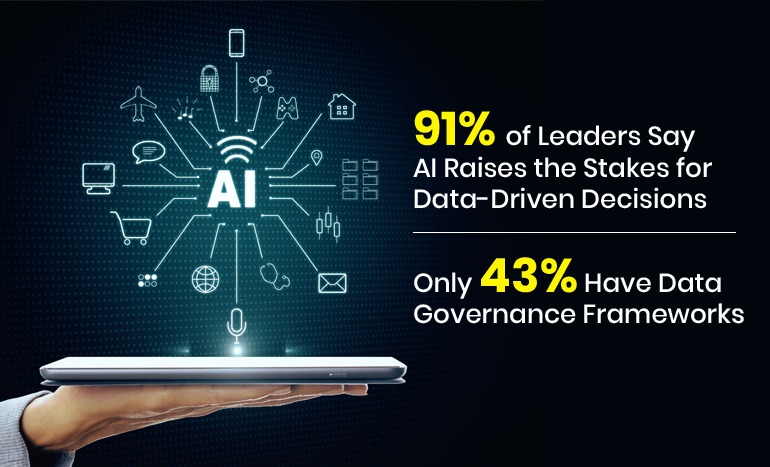Google took the advertising world by total surprise when it announced that Chrome will stop supporting third-party cookies by 2024. Unlike a few years ago, global eCommerce businesses rely on cookies for marketing and advertising campaigns as well as personalizing shopping experiences on their websites. Cookieless future bright for Ecommerce Companies.
Cookies are the little text files kept in a web user’s data folder or browser directory.
Ecommerce websites set cookies on users’ browsers,
- to remember login information,
- recognize visitors, offer a personalized buying experience,
- to transport data across linked websites or between sessions on the same website.
These cookies have been used for everything from displaying product recommendations to promoting interest-based products. For example, web cookies are used to deliver many types of targeted digital marketing campaigns. They store user data and behavior information, which allows advertising services to target audience groups according to variables including age. gender etc.
Why Are Cookies Important?
It is vital to keep track of user activity and engagement and cookies help to do that. In the absence of cookies that assist in cross-platform identification, it will be difficult to analyze ad impressions, and frequency, and classify incoming customers as new or returning.
Measuring even the simplest metrics can become problematic, which can result in lost sales.
What Does a Cookieless World Look Like?
Marketers are growing anxious about the future of cookies since Google announced the removal of third-party cookies and Apple revealed changes that drastically reduce the value of Identifiers for Advertisers (IDFAs).
Customers still desire personalization despite rising consumer privacy expectations, so marketers must ensure the data they utilize is precise and clean. Using cookies that save data and offer consent preferences is one method to maintain this precarious balance.
However, third-party cookies are expected to become obsolete in two years.
As third-party cookies disappear, marketers will lose access to much of the data that they currently have. This will lead to problems with targeted ads and will make it difficult for eCommerce brands to determine which strategies are effective. It’s likely that return on ad spend (ROAS) will drop, as well as customer acquisition costs. Consumers will receive fewer personalized ads due to increased security and privacy controls.
What is Cookieless eCommerce?
The phasing out of cookies will require developing consumer-centric, authentic methods for collecting data to accomplish the same goals. Cookieless eCommerce is a trend that has been growing in popularity over the last few years. It is a method for businesses to keep customers’ private information safe while also allowing them to do business with you without giving up too much personal information.
A cookieless eCommerce solution refers to storing web analytics data on remote servers instead of storing them on users’ devices. With this method, marketers can still obtain all the essential analytics data while maintaining their customers’ privacy.
Many large tech companies, such as Google, have devised possible solutions. Federated Learning of Cohorts (FLoC) will display ads based on browsing cohorts and group users based on their shared identifiers to facilitate identifying them across the web.
However, as of early 2021, no single solution had emerged, and none appeared to be gaining traction, given the issue’s complexity. To learn about consumers’ online interests, Google will replace FLoC with Topics API in January 2022.
How Can eCommerce Prepare for a Cookieless Future?
By banning third-party cookies, you can strengthen your consumer data. Choose to opt for a more ethical means of obtaining information. You will not have to rely on traditional data tracking methods that many consumers consider an invasion of privacy (think how often your friends complain about brands stalking them on social media). To get the information you need, you must contact consumers directly.
As a result, you will earn consumers’ trust and develop a methodical way of understanding consumer interests, preferences, purchase behavior, and more in a way that can benefit your business across all functions.
The following steps will benefit you in preparing for cookieless eCommerce.
-
Collect more first-party data
Through interactions with customers and prospects, you collect first-party data. Since this data is more specific to what you’re looking for, it is more reliable than third-party data collected by outside sources.
Various methods can collect first-party data, including surveys, customer loyalty programs, and customer service interactions.
-
Find out what options are available for second-party data
You can explore second-party data providers if you cannot collect first-hand data because of your industry or products. A company collects second-party data and shares it with another company. For instance, a website that uses first-party cookies to track user behavior may share that information with your business. Because the users have already permitted their data to be collected and shared, this type of data sharing is generally considered more ethical than third-party data collection. The second-party data providers are often companies with whom users already have a relationship, so it is more likely that the users will trust them with their data.
Cookieless Future for Ecommerce Remains Promising
Despite the importance of cookies in today’s marketing strategies, it is essential to protect users’ privacy and ensure that they are not tracked without explicit consent. Although cookies have their place on the web, users need to understand how and when they are used to understand what information is being collected and what information will be sent to third parties such as advertisers or social media sites. Our digital marketing offerings can help you in this transition journey to cookieless. We at Impelsys always focus on providing an efficient solution that meets the customer’s needs. A team of highly qualified professionals will guide and assist you in selecting the appropriate DAM solution for your business. Once they have identified the issue, technical specialists will strive to put the remedy into practice methodically. We will be in close contact with you throughout the implementation period for evaluation and feedback.
Our experience includes implementing solutions for our clients on platforms such as Adobe Commerce, Adobe Experience Manager, Magento, Shopify, Drupal, Google ads, social media, Omni channels, WordPress, etc.
Connect with us:
Leveraging over 20 years of rich technology experience, Impelsys is diligently creating technology solutions with our tried-and-tested digital transformation approach and application engineering expertise to drive business growth across industry verticals. To learn more, visit Impelsys or email us at marketing@impelsys.com to get started.







